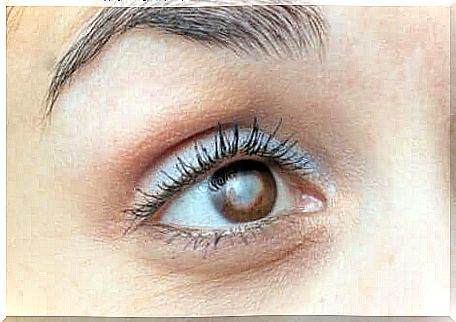The Benefits Of Eating One Egg A Day

How many times have we heard that eating more than one egg a day is bad? The recommendations about how much eggs we should eat and how often have changed a lot over time.
The controversy has to do with the many myths that exist about this food. In this article, we will clarify all this information and tell you about the benefits of eating one egg a day.
Why is it healthy to eat one egg a day?
To know how often you can eat eggs, we must first know the composition and properties of this food. The 2015-2020 Dietary Guidelines for Americans indicate that eggs are rich in nutrients and high-quality protein and can be part of healthy diets.
In addition, they provide few calories, about 78 kcal, comparable to a banana. Egg whites mainly contain water (88%) and egg whites, of which albumin is the most important. In the yolk 50% consists of water and the rest of equal parts proteins and fats.
The best dietary proteins
The content of essential amino acids and the bioavailability of egg protein make it a high-quality nutrient. In the early stages of life (via the mother’s diet) it promotes fetal development. Its function is equally important in the growth phase of childhood and adolescence.
One of the best-known functions of proteins is to build and maintain tissues, including muscles. Therefore, it is very valuable for people with a lot of physical activity.
In the elderly, high-quality protein sources such as eggs help to counteract the age-related loss of muscle mass. Therefore, it helps maintain mobility, physical activity and quality of life.
Due to their nutritional composition, eggs are a food with a high satisfying potential. This is a particularly attractive feature for people who want to lose weight. For example, eating an egg for breakfast can satisfy hunger for a longer period of time.
Therefore, there is a tendency to snack less between meals. This is due to the protein content itself, as stated in an article published in the journal Appetite . In this case, it is best to cook eggs by adding little to no fat. For example in a frying pan or hard-boiled.

Eivet
All the fat in an egg is contained in the yolk. Eggs are one of the foods of animal origin with the least saturated fats and the best ratio of unsaturated and saturated fatty acids.
In addition, they are rich in oleic acid (typical of olive oil). Today, oleic acid is highly valued by experts for its beneficial effect on blood vessels. Thus, it reduces the risk of cardiovascular disease and liver disease.
As if this were not enough, this food is the best source of choline, an essential nutrient for the development and normal functioning of the body. Normally, our body does not synthesize enough choline, so we have to get it from food.
Essential vitamins and minerals
One egg a day provides significant amounts of a wide variety of vitamins, such as:
- a
- B2
- biotin
- B12
- d
- E
It is also a source of minerals such as:
- phosphorus
- selenium
- iron
- iodine
- zinc
All these substances contribute to covering a large part of your body’s daily nutritional needs.
Lutein and Zeaxanthin
Lutein and zeaxanthin are pigments of the carotenoid family found in green vegetables and egg yolks. These serve as antioxidants that are deposited in the eye and have been shown to protect the eyes and prevent cataracts.
A study published in The Journal of Nutrition found that eating six eggs a week for 12 weeks increases blood levels of zeaxanthin and improves the optical density of the macular pigment.

Egg, Cholesterol and Cardiovascular Risk
In the last decades of the last century, experts recommended limiting the consumption of eggs because of their high cholesterol content. This recommendation was a preventive measure to protect cardiovascular health. In 1973, the American Heart Association recommended limiting egg consumption to a maximum of three per week.
However, the effect of dietary cholesterol on plasma cholesterol levels in healthy people is minimal. In addition, it largely depends on individual factors such as genetics, body weight and lifestyle. According to a study published in the journal Nutrients , the link is not as direct as once suspected.
Therefore, after numerous studies, there is no longer scientific support for the erroneous belief that egg ingestion could increase cardiovascular risk due to its effect on cholesterol levels.
Eating one egg a day does not harm the blood lipid profile and does not increase the risk of cardiovascular disease.
So how often is the best time to eat eggs?
It has become more than clear that eggs are a very complete food that offers us numerous benefits. So don’t be afraid to eat an egg a day, always with a healthy and varied diet.
Also, don’t forget to exercise regularly to improve various health aspects, such as your lipid profile.









